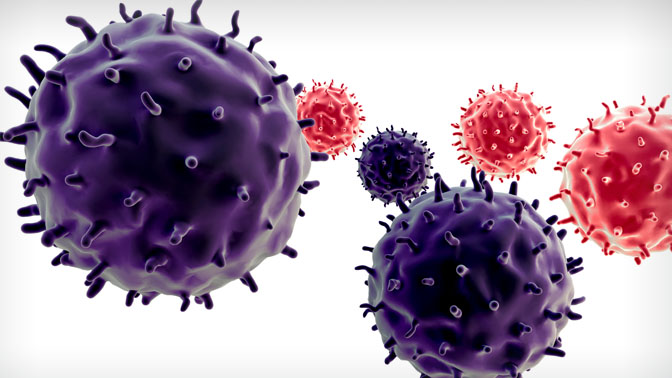
Aging and ‘wear-and-tear’ can take a significant toll on the human body, especially our weight-bearing joints. Osteoarthritis—the most common form of arthritis—is a condition characterized by the progressive loss of cartilage in the joints of the hands, knees, hips and spine. Cartilage is an elastic tissue that covers and cushions bones in the joint, and as it degrades over time, joints become stiff and painful.
While we know that the immune system is involved in disease progression, it is unclear if and how different types of immune cells are linked to the severity of symptoms or quality of life.
To address this gap, a team led by Dr. Sowmya Viswanathan, an Affiliate Scientist at the Krembil Research Institute, analyzed several types of immune cells in the joint fluid of individuals diagnosed with knee osteoarthritis. As part of the study, these individuals completed questionnaires on their symptoms, daily living activity, quality of life, pain, stiffness and joint function prior to receiving treatment.
The researchers found that monocytes and macrophages were the most abundant types of immune cell present within the joint fluid of osteoarthritis patients. Further investigation revealed that particular subtypes of monocytes and macrophages were linked to patient-reported outcomes, especially joint stiffness and function, as well as quality of life.
“Our findings suggest that certain populations of immune cells could serve as indicators of disease severity. They also provide new insights into the biology of osteoarthritis that could inform the development of therapies to slow or stop disease progression,” says Dr. Viswanathan.
This work was supported by the Arthritis Society and the Toronto General & Western Hospital Foundation.
Gómez-Aristizábal A, Gandhi R, Mahomed NN, Marshall KW, Viswanathan S. Synovial fluid monocyte/macrophage subsets and their correlation to patient reported outcomes in osteoarthritic patients: a cohort study. Arthritis Res Ther. 2019 Jan 18. doi: 10.1186/s13075-018-1798-2.

Dr. Sowmya Viswanathan, Affiliate Scientist, Krembil Research Institute




